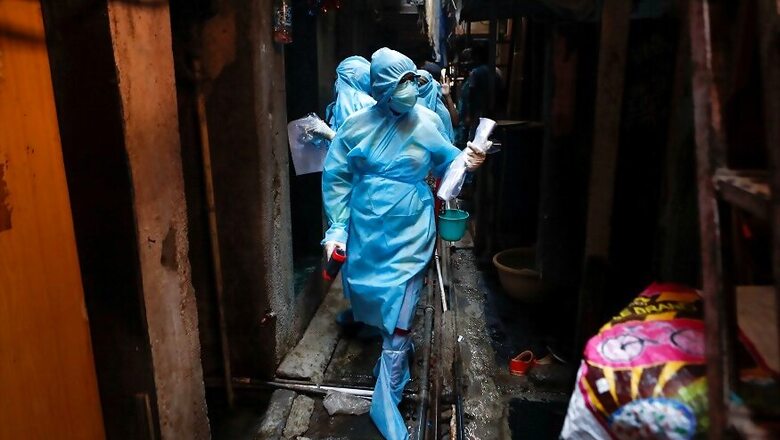
views
New Delhi: Even as it is in a more comfortable spot compared to other states, Kerala government has begun, what it called a ‘sentinel surveillance’, to detect or rule out prevalence of community transmission of Covid-19.
Beginning last Thursday, it started picking samples of a carefully selected cross-section of people at the panchayat level. Every alternate day, frontline workers of the health department have been collecting samples of people who are more vulnerable across all 14 districts of the state.
According to top officials in the government, two persons have tested positive in the state from these samples and one among them was a healthcare worker from Chathannoor in Kollam district.
These samples were collected from main hospitals in the panchayat areas, according to an official of the health department. Besides the sentinel surveillance, the state government has also collected over 3,000 samples as part of ‘augmented surveillance’, according to senior officials of the health department.
These samples were collected on Sunday, April 26, from the general population.
The state government was initially planning a sentinel surveillance using rapid antibody kits, as reported by News18 on April 4.
However, following the delays in procurement of the rapid antibody kits, the state government went ahead with the surveillance and is using the RT-PCR (Reverse transcription– Polymerase chain reaction) tests for confirming positive cases.
“We are doing this across selected panchayats in 14 districts and they have been chosen based on vulnerabilities. We have a criterion which includes number of people who have come back from abroad, number of primary and secondary contacts, number of elderly and those with co-morbidities in the panchayat. Then, we are also looking at high priority persons such as pregnant women, elderly, and shopkeepers and healthcare workers, since they are exposed more,” said a senior health department official.
“We will also receive rapid antibody test kits from Hindustan Lifecare Ltd this Friday and we will use those as well for surveillance purposes. Those who test positive with rapid kits will be sent for a RT-PCR test,” the senior official added.
As on Wednesday evening, Kerala had reported 495 cumulative cases, 123 active cases, 369 had already recovered and been discharged and three had died.
“In the initial phase, we saw those people testing positive who had returned from abroad and those who came in close contact with them. There were clear symptoms. Such people were quarantined and isolated. But since then, we have realised that there are asymptomatic cases too. To detect such cases, epidemiological surveillance will help. This will also help detect community transmission. Some amount of asymptomatic transmission will happen and we cannot run away from it,” said Dr Iype Joseph, epidemiologist, Rajiv Gandhi Centre for Biotechnology, Trivandrum.




















Comments
0 comment